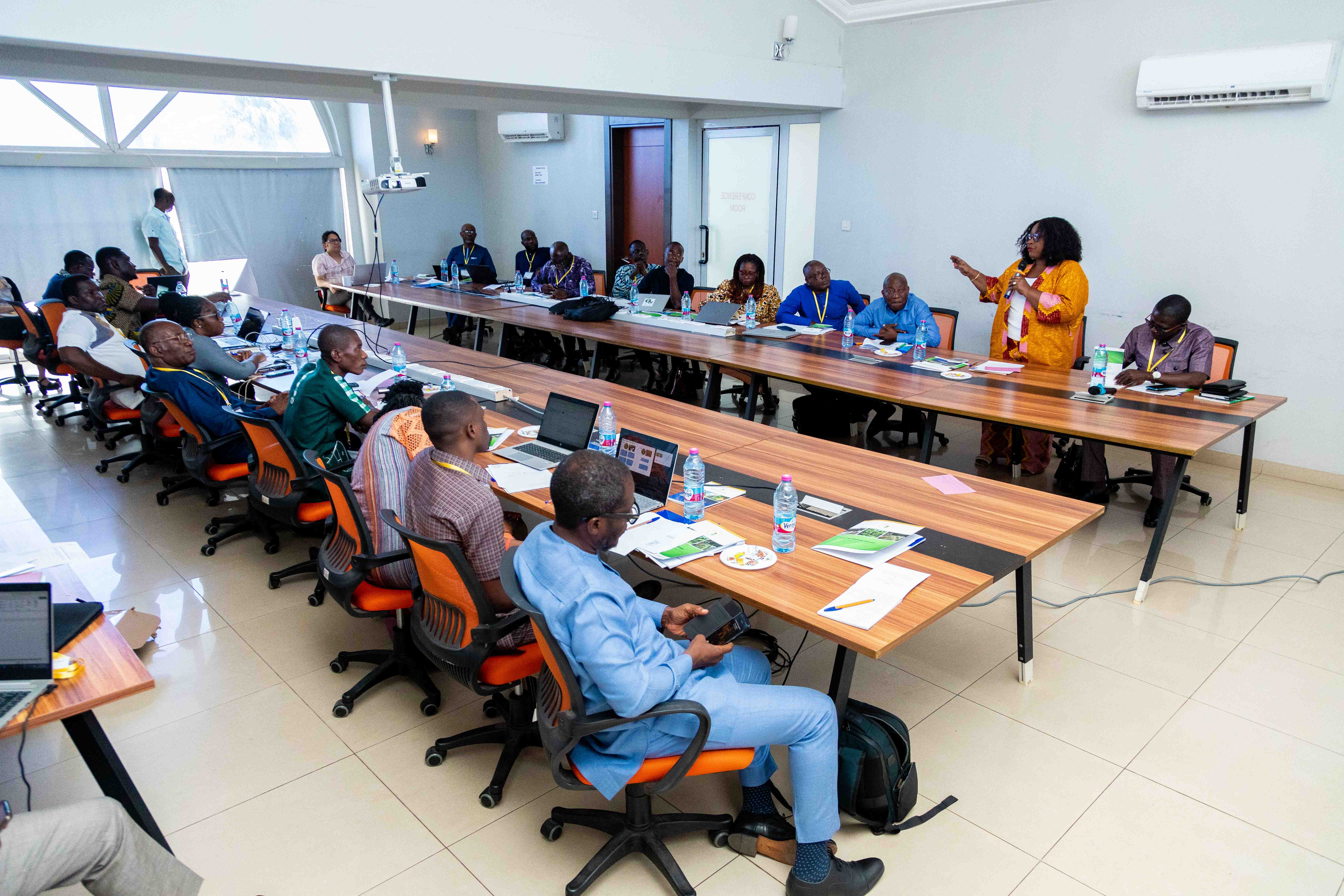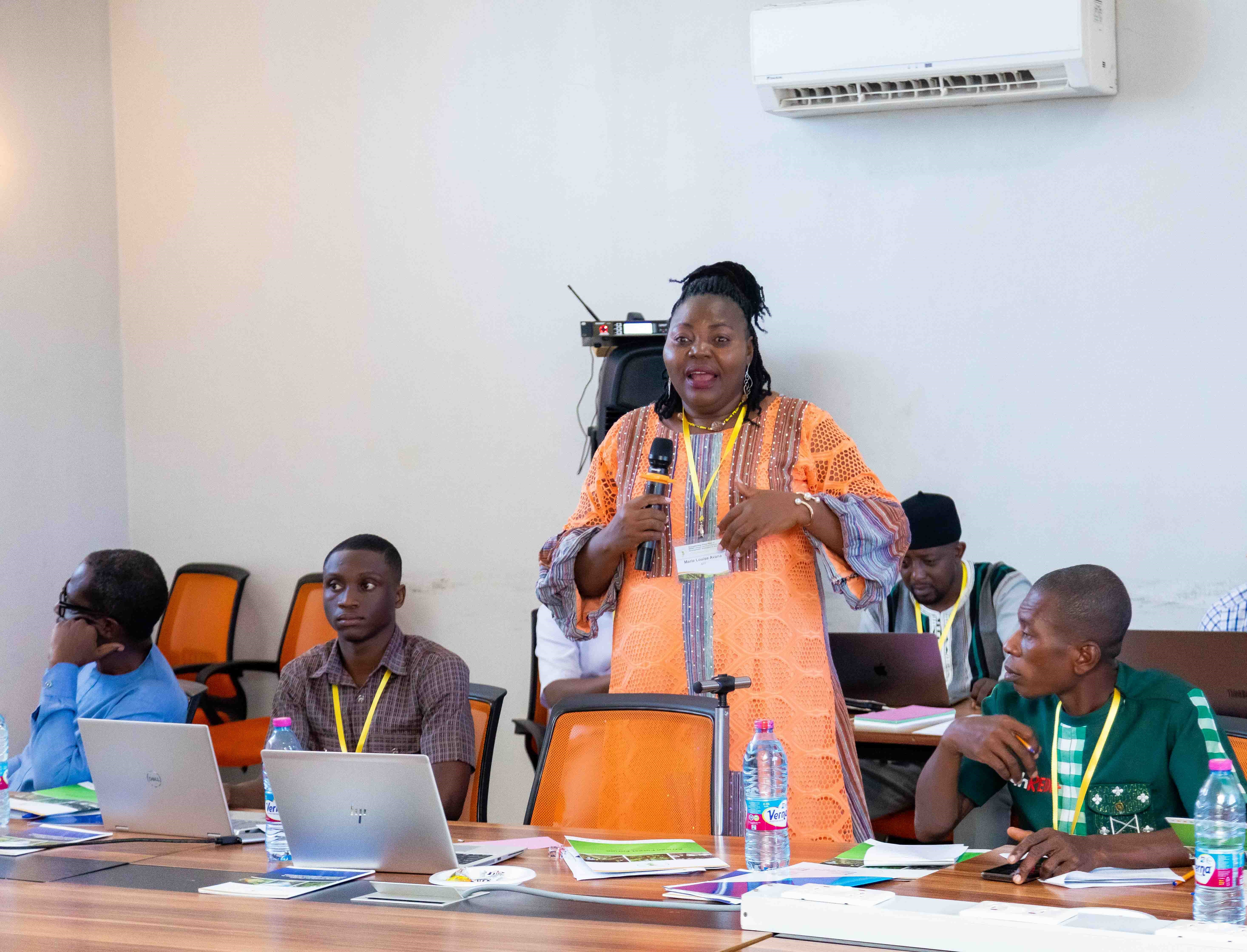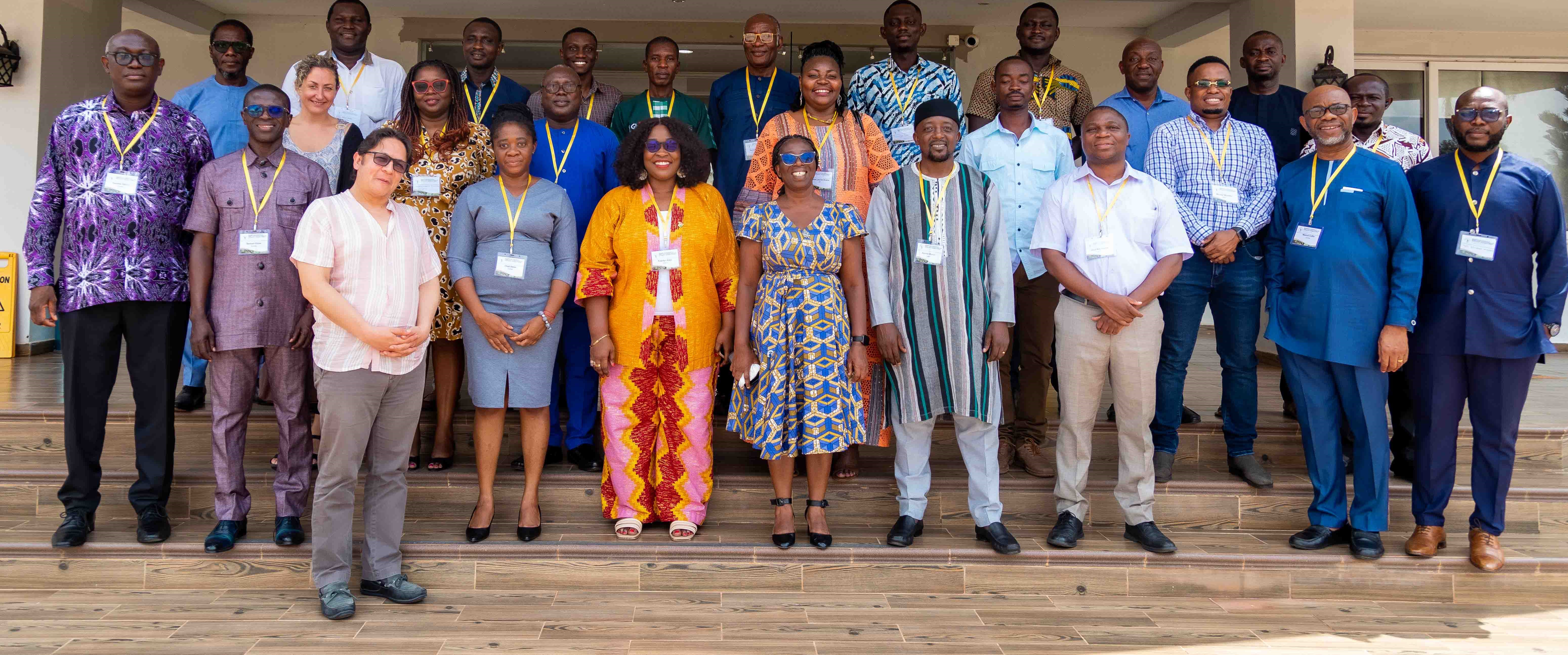Ghana policy actors, African Forest Forum and UN-REDD Specialists pose for a group photo outside the venue
Ghana’s regional leadership in embracing Reducing Emissions from Deforestation and Forest Degradation (REDD+) to help reduce deforestation and combat climate change is set to push ahead, policymakers told a high-level meeting this month, as they discussed ways to improve implementation across the country’s economy.
To support Ghana in making improvements to its REDD+ implementation – through policy, regulation and institutional changes - the African Forest Forum (AFF) in partnership with the Forestry Commission of Ghana and UN-REDD Programme, organized a National Policy Dialogue in Accra, Ghana from 29- 31 May 2024. A total of 22 policy actors participated drawn from various sectors including; forestry, energy, livestock, agriculture, land, wildlife, mining sector and local government officials, as well as leaders from national and international non-governmental organizations.
Addressing delegates during the opening ceremony, Roselyn Adjei, Ghana’s Climate Change Director and REDD+ National Focal Point said the dialogue was crucial for the country as a cross-sectoral approach would help it achieve current commitments.The participation of all relevant stakeholders would also make it easier to mobilize the human, financial and technical resources needed for REDD+ implementation, she added.
Key discussions at the event included:
- The need for better coordination and cooperation to ensure REDD+ alignment within existing government policies and measures related to social and environmental management.
- Improving cross-sectoral coordination and inconsistencies between REDD+ strategies and other sectoral policies.
- Creating REDD+ coordination and integration mechanisms for leveraging opportunities and addressing potential distinctives across key industries.
- The need to align competing land use policies with REDD+ and forest related policies

Ghana Climate Change Director Roselyn Adjei addressing the participants during the dialogue
As one of the leading countries backing Reducing Emissions from Deforestation and Forest Degradation (REDD+) in Africa, Ghana has demonstrated considerable leadership to address the drivers of deforestation and degradation, which constitute one of the most compelling climate change challenges in the country. The world’s second largest cocoa producer has received over $50 million in results-based payments to date and is the only African country to distribute these payments to all relevant stakeholders, with forest adjacent communities receiving 69%.
These achievements are down to several factors, including the overall good governance that has facilitated inclusiveness and effective participation in REDD+ processes. Ghana’s success has also attracted a lot of interest at regional and international levels, allowing the country to engage in several pilot and innovative projects that have impressed REDD+ stakeholders and enhanced intersectoral coordination, integrity and standards.

AFF Senior Programme officer Prof. Marie Louise addressing the participants during the dialogue
Addressing the meeting, AFF Senior Programme Officer Prof. Marie Louise Avana reiterated the importance of greater dialogue, adding that it would propel the country to receiving further results-based payments.
Meanwhile, Achille Momo, the UN-REDD-AFF Project Coordinator assured stakeholders that UN-REDD’s consistent technical support would further identify and drive reforms in policies, regulations and institutional arrangements aimed at improving Ghana’s REDD+ implementation.
Key outcomes of the dialogue included:
- Key policymakers were introduced to sectoral policies and strategies that have potential to influence REDD+ implementation at the national level.
- Policymakers were shown existing opportunities for mainstreaming and integrating REDD+ activities across relevant sectoral policies to contribute to the country’s sustainable development endeavor.
- Stakeholders became better informed and understood potential disincentives and constraints at policy and institutional levels, that could negatively affect REDD+ process.
- Entry points for addressing disincentives and harnessing opportunities discussed and consensus built among key stakeholders.
As a way forward, a road map was developed by delegates with roles, responsibilities, and timeline for each REDD+ stakeholder for achieving the REDD+ coordination and integration, building on agreed recommendations.
Photo credits: © Forestry Commission of Ghana



